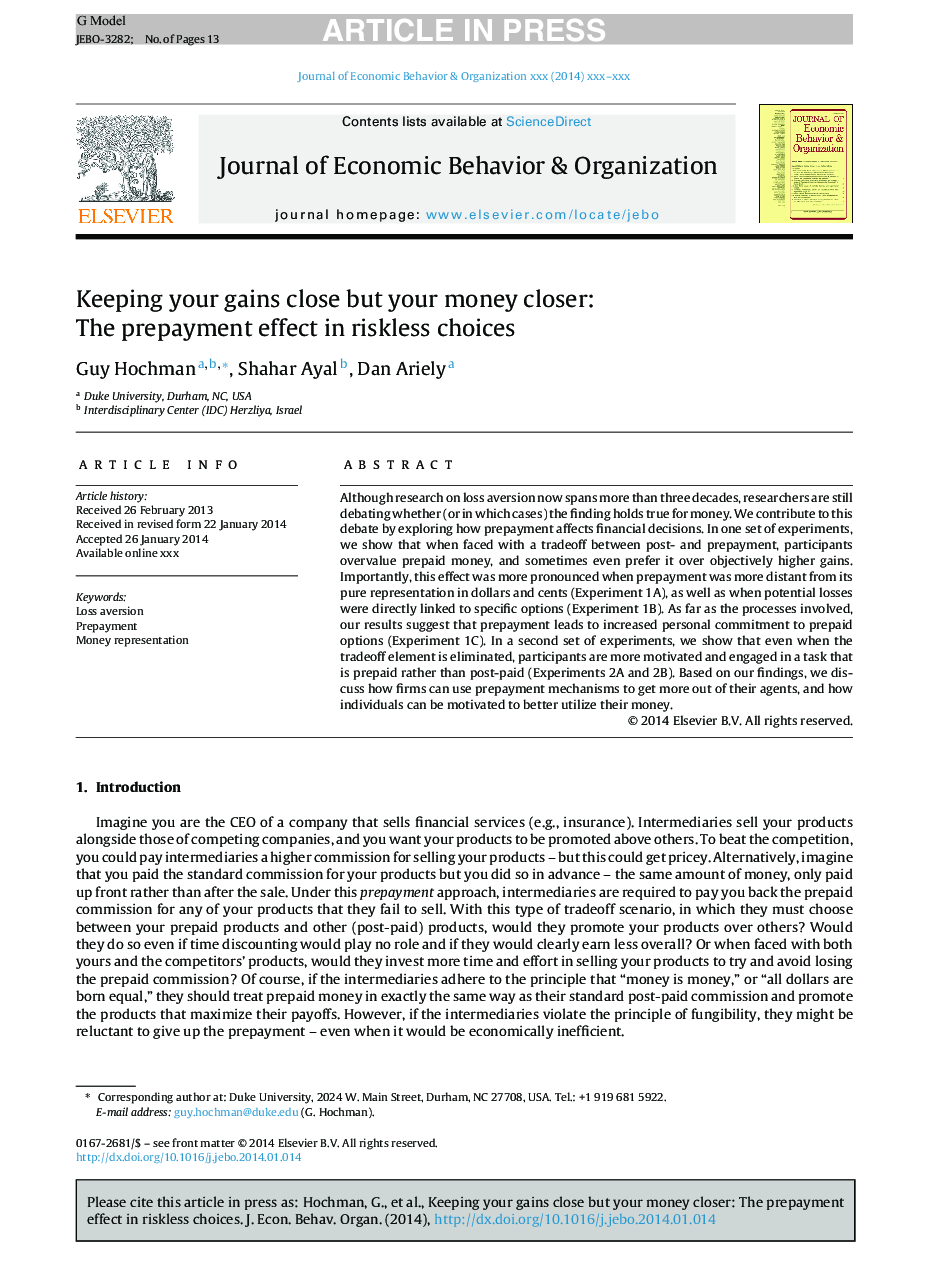| Article ID | Journal | Published Year | Pages | File Type |
|---|---|---|---|---|
| 10437656 | Journal of Economic Behavior & Organization | 2014 | 13 Pages |
Abstract
Although research on loss aversion now spans more than three decades, researchers are still debating whether (or in which cases) the finding holds true for money. We contribute to this debate by exploring how prepayment affects financial decisions. In one set of experiments, we show that when faced with a tradeoff between post- and prepayment, participants overvalue prepaid money, and sometimes even prefer it over objectively higher gains. Importantly, this effect was more pronounced when prepayment was more distant from its pure representation in dollars and cents (Experiment 1A), as well as when potential losses were directly linked to specific options (Experiment 1B). As far as the processes involved, our results suggest that prepayment leads to increased personal commitment to prepaid options (Experiment 1C). In a second set of experiments, we show that even when the tradeoff element is eliminated, participants are more motivated and engaged in a task that is prepaid rather than post-paid (Experiments 2A and 2B). Based on our findings, we discuss how firms can use prepayment mechanisms to get more out of their agents, and how individuals can be motivated to better utilize their money.
Keywords
Related Topics
Social Sciences and Humanities
Economics, Econometrics and Finance
Economics and Econometrics
Authors
Guy Hochman, Shahar Ayal, Dan Ariely,
